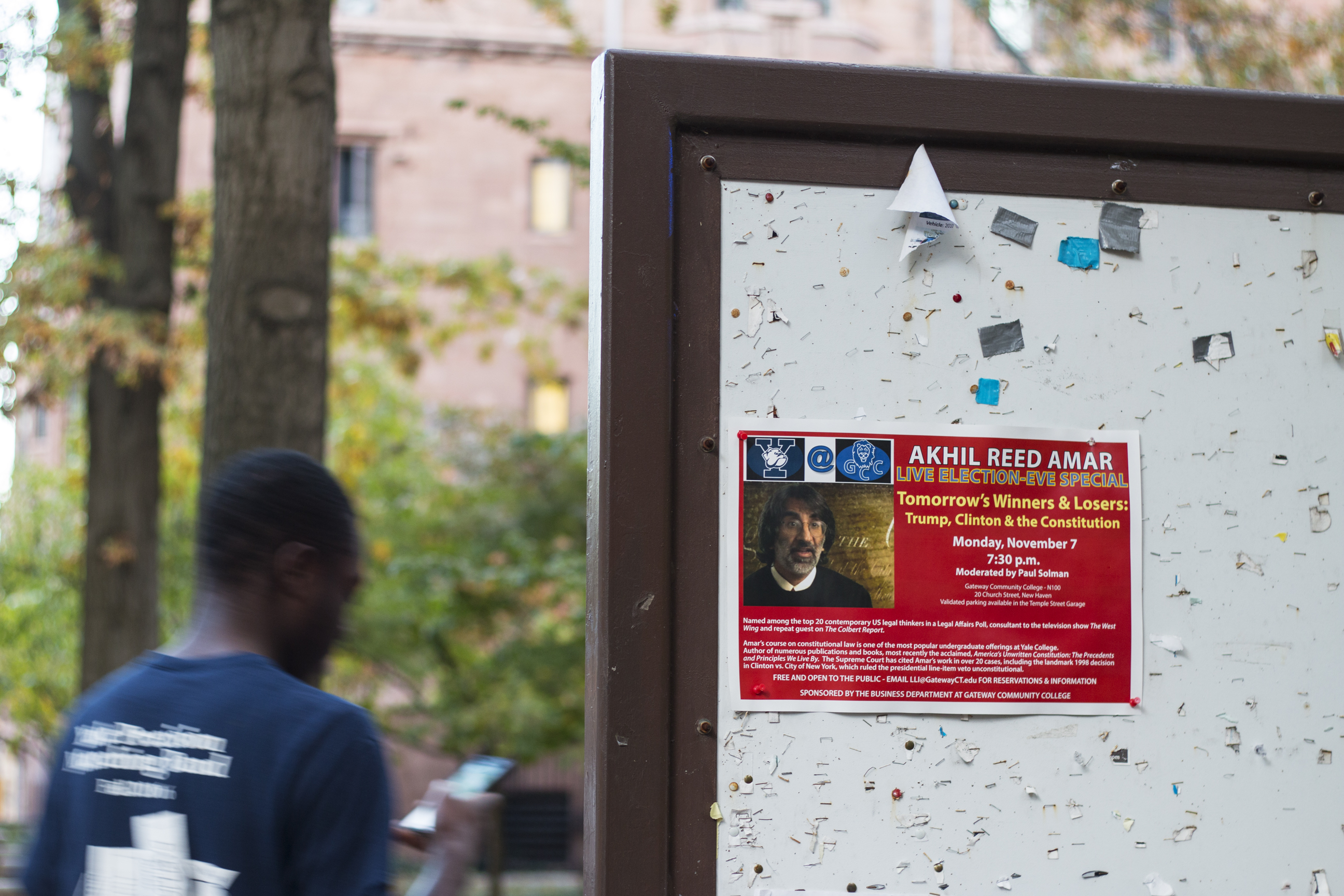
The 2016 presidential election has Yale women on both sides of the aisle discussing the state of the Republican party, even while a small fraction of conservative women at Yale will support Donald Trump in this election.
According to a News survey distributed in early October, roughly 5 percent of the 2,054 Yalies who responded said they would support the Republican Party nominee Donald Trump in the upcoming election. Of this 5 percent, just over 0.2 percent identified as women.
The proportion of woman conservatives who are active within on-campus conservative groups is even smaller. No females serve on the executive board of the Yale New Republicans, and Michael Fitzgerald ’19, the co-chairman of the YNR, noted that “[the group] is a pretty small group of people,” but estimates that about 10 to 15 female conservatives express interest in his group and in the Yale College Republicans. Fitzgerald added that he only knows of one woman who withdrew from the YCR in order to join the YNR after the YCR endorsed Trump in August and the group fractured.
Madison Masters ’17, speaker of the Yale Political Union, said that for years Republican women have been fighting the misconception that their entire party is “sexist, racist, et cetera” and added that the academic underpinnings of conservative philosophy do not encourage discrimination, but rather deal with gradual change and respect for authority and the “old order.” Still, Masters said, Trump’s candidacy has made it much more difficult for conservative women to defend these values.
“Female conservatives are often thought of as self-hating misogynists, which is clearly false,” Masters said. “It’s similar to the stereotype of liberal men being self-hating man-haters, and neither of these are fair.”
Both female co-presidents of the YCR declined to comment, but a female source involved with the YCR — who asked to remain anonymous because her support for Trump is not always welcome on campus — said that while the YCR, like the YNR, has a relatively small membership, the only other female members that she has seen at meetings are the co-presidents.
The same student added that if Trump were running against a candidate other than Hillary Clinton LAW ’73, then she might have supported the Democratic nominee. But because she distrusts Clinton, she intends to vote for Trump next week, she said.
She added that while Trump has made offensive comments about women, the media has “blown many of his words out of proportion” and she feels his public apologies prove he is remorseful for any hurtful remarks he may have made. Additionally, she said that her support for Trump was driven by the possibility of adding more conservative justices to the U.S. Supreme Court.
The same student said that the majority of Yale students have been more welcoming of her political beliefs than she expected, but that being vocal about her opinions on campus is still difficult at times.
While Gabrielle Diaz ’18, the Democratic Committee co-chair for Ward 22, said that she sees most Republican policies as “inherently antiwoman,” she has observed similar stereotypes about conservative women that she believes are unfair, she said.
Diaz also noted that liberal women tend to be critical of conservative women based on the belief that these conservative women are unintelligent or giving up their own rights. According to Diaz, this way of thinking tends to misrepresent the overall population of Trump supporters as “many women do know what they are subscribing to.”
“It’s far more likely that a lot of people do know what they’re saying, and that’s scarier,” Diaz said.
The U.S. Presidential election is on Nov. 8.







